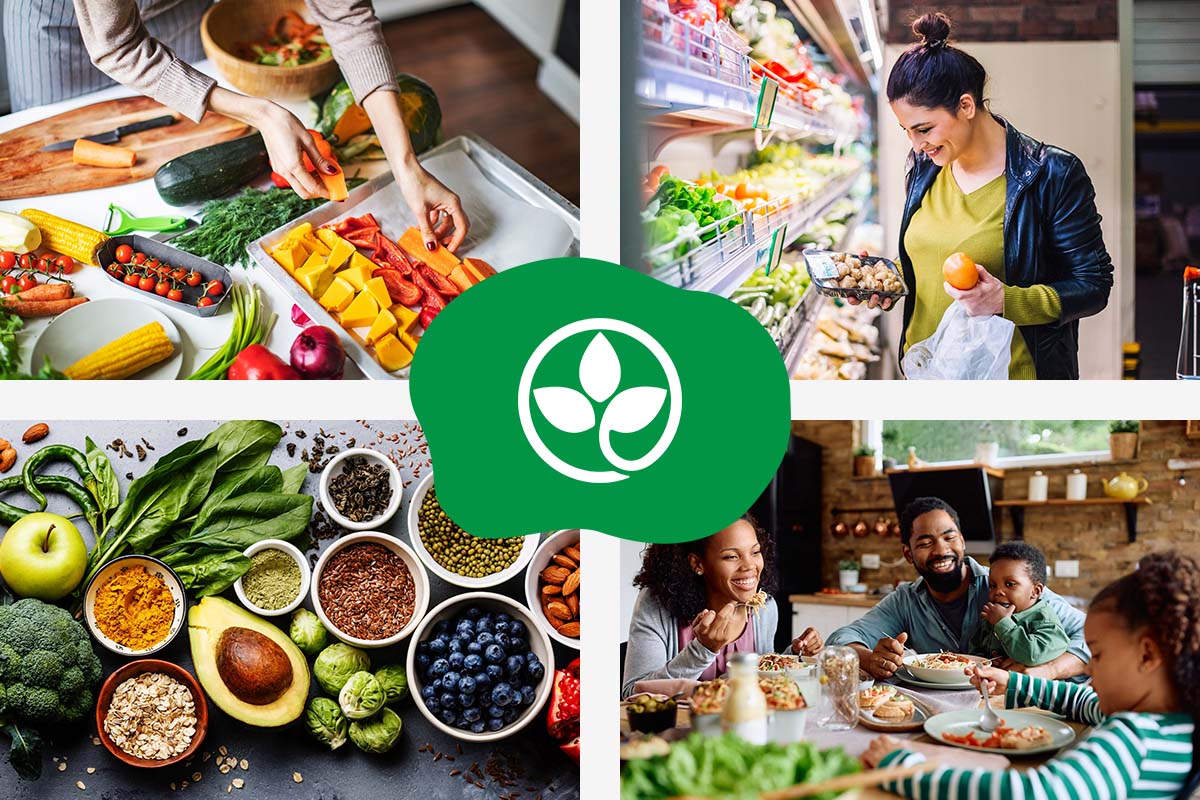Living a
Whole Food,
Plant-Based Life
Are you curious about a whole-food, plant-based (WFPB) diet? The T. Colin Campbell Center for Nutrition Studies is here to help you get started.
The term whole in WFPB describes foods that are minimally processed. This includes whole grains, fruits, vegetables, legumes (beans, peas, and lentils), nuts, and seeds.
Many eventually give up the diet label in favor of lifestyle. Perhaps that’s because the popular notion of dieting has become so confusing. A WFPB lifestyle is simpler. It’s not a short-term punishment charged by guilt. It’s not a set of complicated meal plans. It’s a return to whole foods, natural flavors, and optimal health.
Plant-Based 101
What do I eat?
Keep it simple—eat whole, unprocessed foods derived from plants.
Why?
The benefits of a healthy lifestyle are enormous. When you adopt a WFPB lifestyle, you can increase the odds that you will:
- Lower risk of prostate, breast, and other cancers
- Prevent, even reverse, heart disease
- Prevent and treat diabetes
- Achieve a healthy body weight and increase your energy levels
- Live longer
- And much more!
The price? Simply changing your diet. You can achieve profound health benefits by including more whole plant-based foods on your plate.
Now, let’s break it down into what should and shouldn’t be on your plate in the next section.


Whole Food,
Plant-Based Guide
Yes! Eat these in abundance.
Enjoy a wide range of whole, unrefined plants. You can eat when you’re hungry and eat until you’re full. Strive for diversity in your meals, and include fiber-rich foods that capture all the colors of the nutrition rainbow.
This page contains a detailed list of many suggestions, but it is not exhaustive. Some items on the list may be inaccessible where you live due to climate or cultural relevance. We encourage you to use these suggestions as a starting point, but explore other foods in the following food groups! Also, choose organic when possible. To learn more about produce, please visit the Environmental Working Group’s (EWG) website to locate their lists of the “Dirty Dozen” and “Clean Fifteen” foods https://www.ewg.org.
Whole Grains & Ancient Grains
amaranth, barley, brown rice, bulgur, farro, millet, quinoa, sorghum, steel cut and rolled oats, teff, wheat berries, whole wheat, wild rice
Legumes (dried or canned with minimal salt)
adzuki beans, black beans, black-eyed peas, chickpeas, fava beans, green beans, kidney beans, lentils, lima beans, mung beans, peas, pinto beans, soybeans
Greens (fresh or frozen)
arugula, bok choy, chards, cilantro, collards, kale, lettuces, parsley, spinach
Roots
beets, carrots, daikon, garlic, ginger, leeks, onions, potatoes (all colors), radishes, turnips
Other veggies
asparagus, Brussels sprouts, cauliflower, celery, mushrooms, peppers, sea vegetables, squash, tomatoes, zucchini
Fruit (fresh or frozen)
apples, apricots, bananas, berries, cherries, grapes, kiwi, mangoes, melons, papayas, pineapple, plums
Omega 3 Rich Seeds
chia seeds, flaxseed
Spices (all spices)
Water (filtered)
Minimally Processed Whole Soy Products (eat in moderation)
edamame, miso, tempeh, tofu
*We recommend 2-3 servings per day. Read more about soy here.
Beverages (drink in moderation)
decaffeinated coffee, green tea, herbal teas, unsweetened plant-based milk substitutes
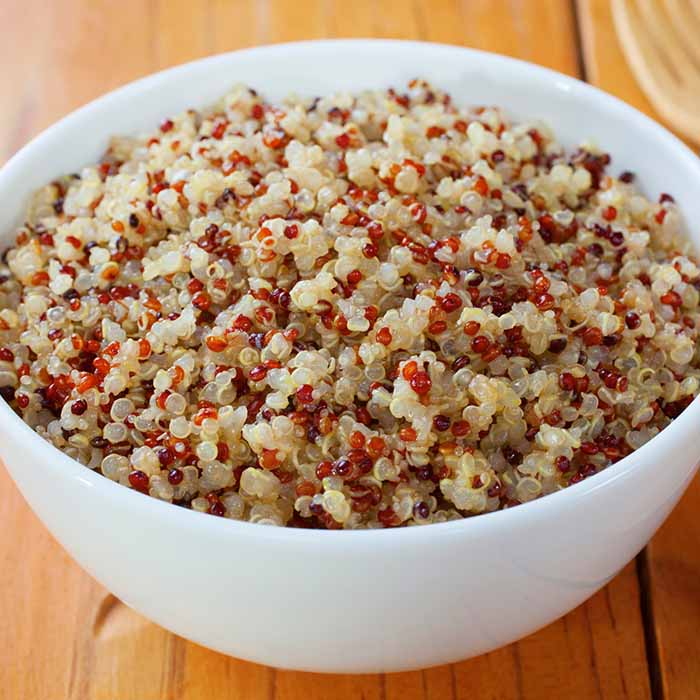
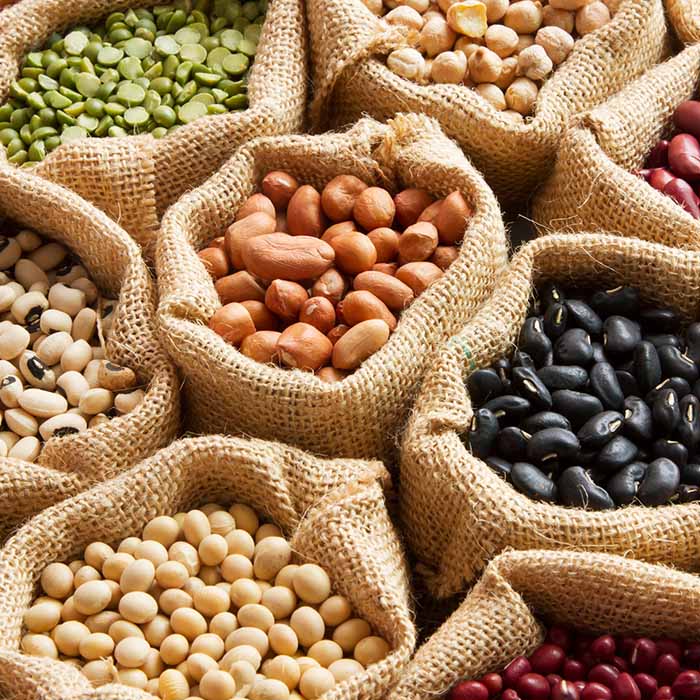
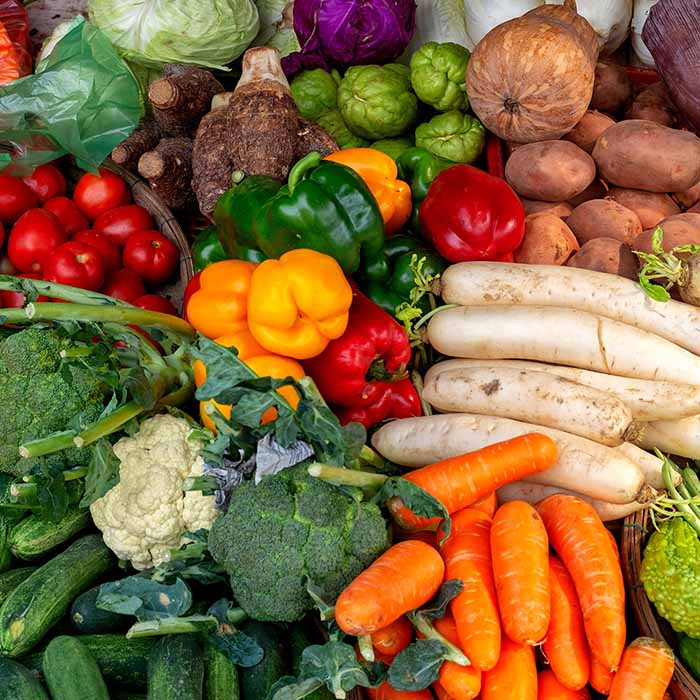
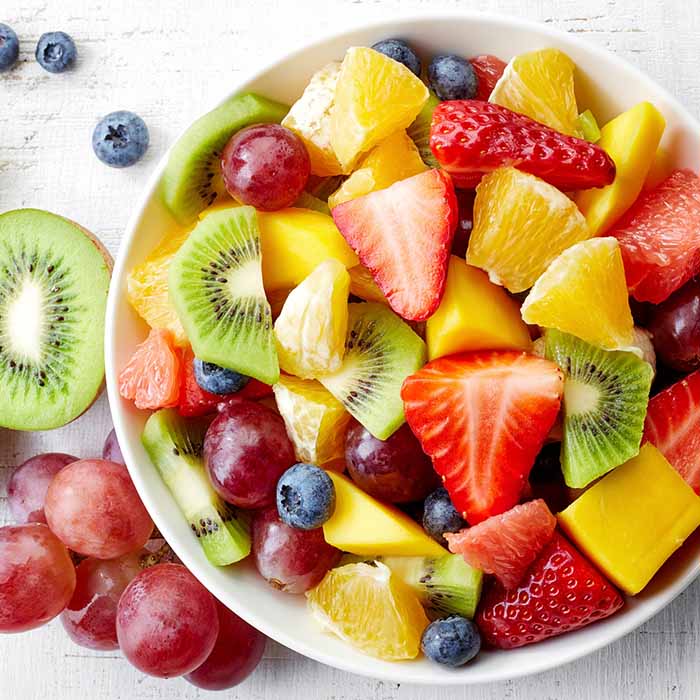
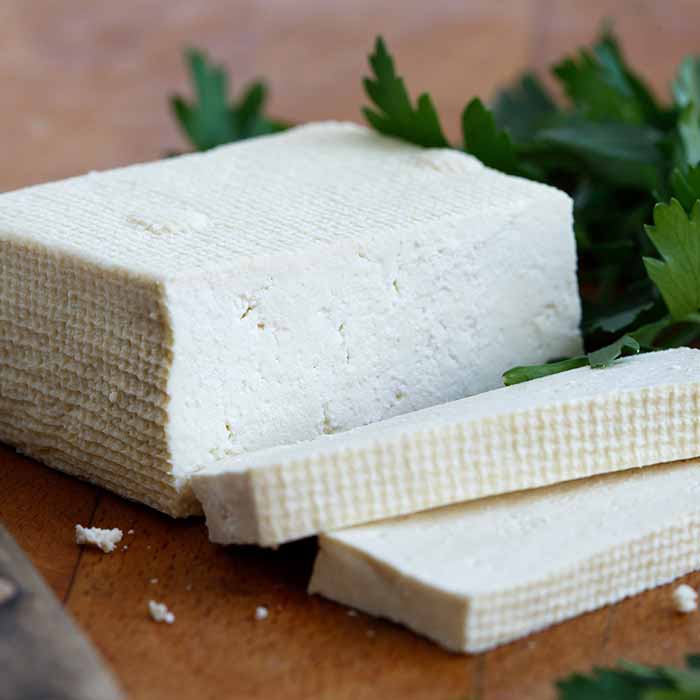
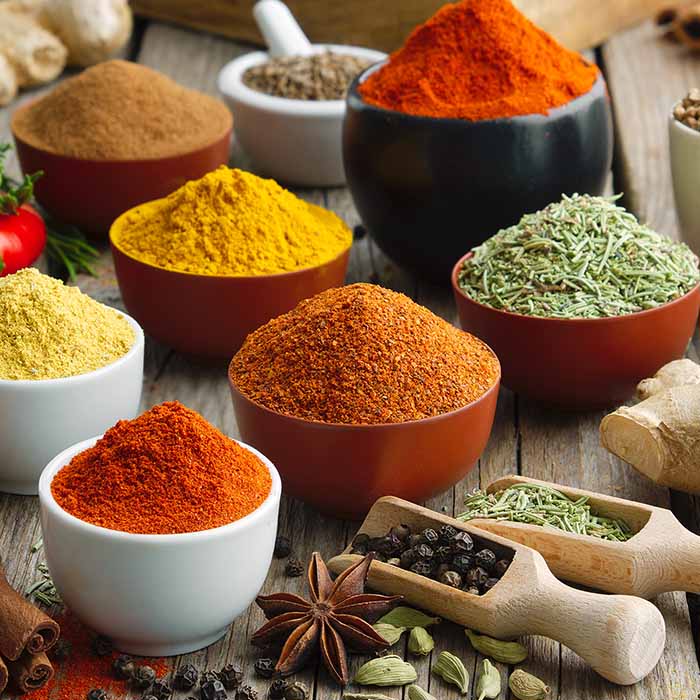






Should I take vitamin B12?
This essential nutrient is not made by animals or plants. B12 is made by microbes, bacteria that blanket the earth. These bacteria are common in the gastrointestinal tract of animals, and so animal foods can be sources of B12. Few plants actually contain vitamin B12: two varieties of edible algae, some varieties of mushrooms, plants grown in experimental settings with B12-enriched soils or water, and some foods made with certain fermentation processes have small amounts of active B12. We recommend a B12 supplement. Learn more from Dr. Thomas Campbell’s article, “12 Questions Answered Regarding Vitamin B12.”
Occasionally.
Eat these sparingly.
Many of these foods are healthy. For example, nuts, seeds, and avocados have many valuable, health-promoting nutrients. But these foods are also very calorie-dense because of their naturally high-fat content. It is also easy to eat these foods excessively without realizing it. Enjoy them in moderation.
Nuts
almonds, cashews, nut butters, pistachios, walnuts
Coconut
low-fat coconut milk, raw coconut, unsweetened shreds or chips
Avocado
Seeds (except omega 3 sources)
pumpkin, sesame, sunflower
Dried Fruit
organic and without added sugars or oils
Added Sweeteners
maple syrup, date syrup, molasses
Beverages
caffeinated coffee and high-caffeine tea (without added sugar)
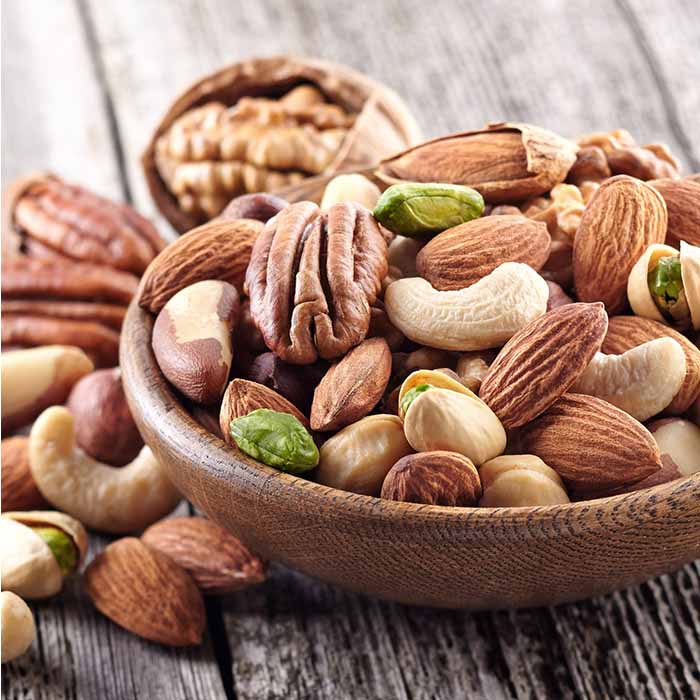

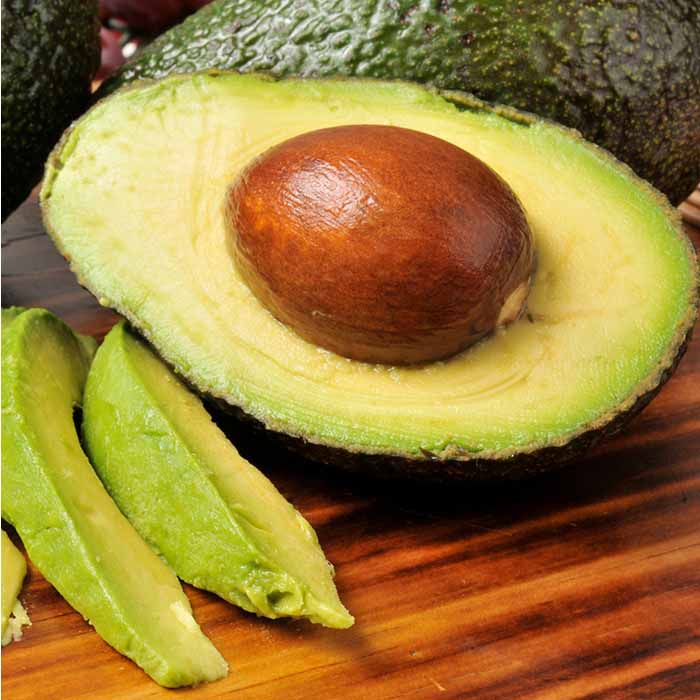



Checking Labels
Checking Labels
If purchasing a pre-packaged food product, carefully read what is on the package, box, or can. Note that product ingredients are listed in descending order, with the greatest amount by weight listed first. Purchase plant-based products with only a few ingredients, which may be a good way to tell if it is less processed. Aim for foods high in fiber and low in sodium and added sugars.
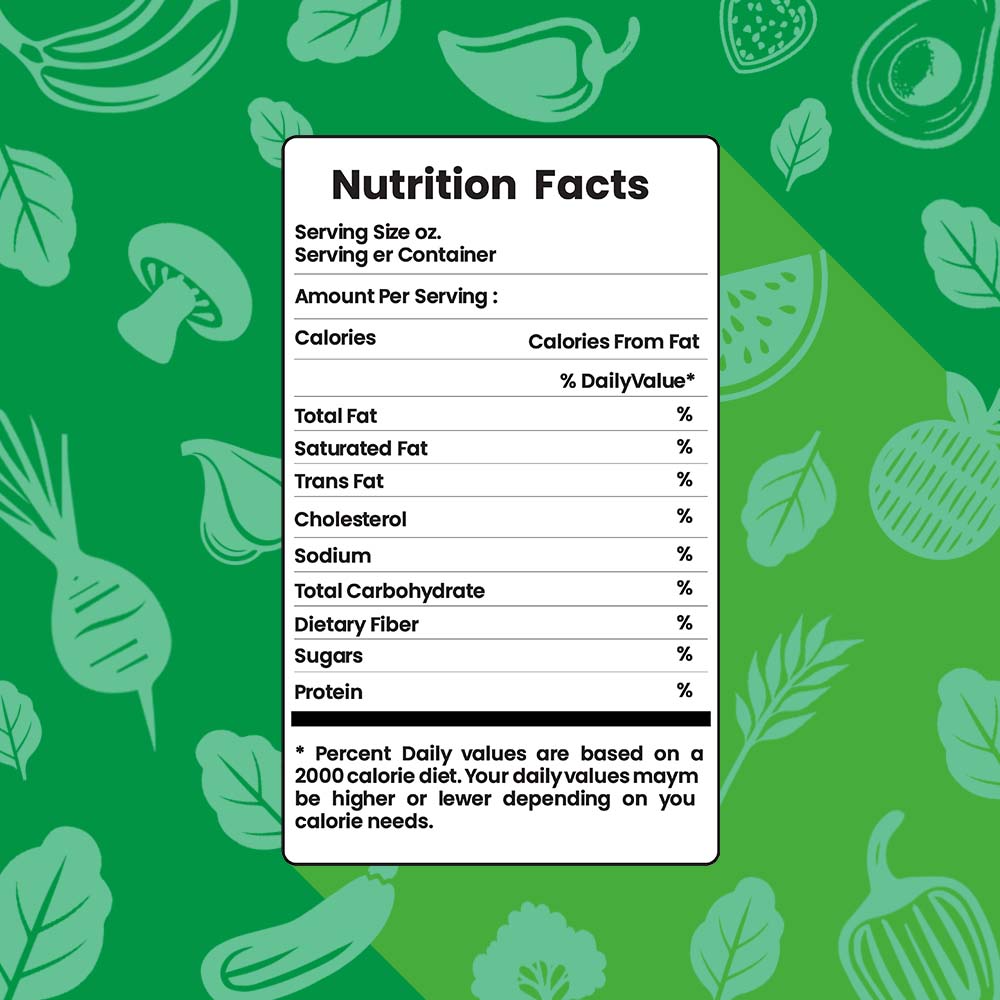
No. Avoid these foods.
The standard American diet (SAD), or the Western diet, is heavy on meat, dairy, and refined and ultra-processed foods. It is very high in added sugar, sodium, and cholesterol and deficient in health-promoting nutrients, fiber, and phytonutrients. Consequently, we face epidemics of obesity, heart disease, diabetes, and other lifestyle-related diseases; staggering health care costs; and lower quality of life.
Meat
fish, lamb, pork, poultry, processed meat, red meat, seafood
Dairy
butter, buttermilk, cheese, cottage cheese, cream, half and half, ice cream, milk, yogurt
Eggs
chicken, duck, ostrich, quail
Processed Plant Fragments
(these oftentimes include vegan replacement foods)
Added Fats
margarine, oils (including olive and coconut)
*Even the finest olive oils are 100% fat, meaning calorically-dense and nutrient-poor. Oil injures the endothelium, the innermost lining of the artery, and that injury is the gateway to vascular disease. Especially for those with known heart disease, adding even a little oil can negatively impact heart health.
Refined Sugar
barley malt, beet sugar, brown sugar, cane juice crystals, confectioners’ sugar (powdered sugar), corn syrup, fructose, white sugar
Refined Grains
white flour (including in pastas, bread, snack foods), white rice
Protein Isolates
isolated soy protein or soy protein isolate, pea protein isolate
Ultra-Processed Foods (Foods with additives, artificial colors, stabilizers)
*These are often packaged and drastically modified from their original state (think Twinkies, Oreos, potato chips, and other “junk foods”). If you’re not sure whether you are eating an ultra-processed food, read the label and ask yourself whether you recognize the ingredients. Are they whole foods or only fragments of the original foods? Read this article for more: What is a Processed Food vs a Whole Food?
Beverages
soda, fruit juice (even 100% pure fruit juice), sports drinks, energy drinks, alcohol

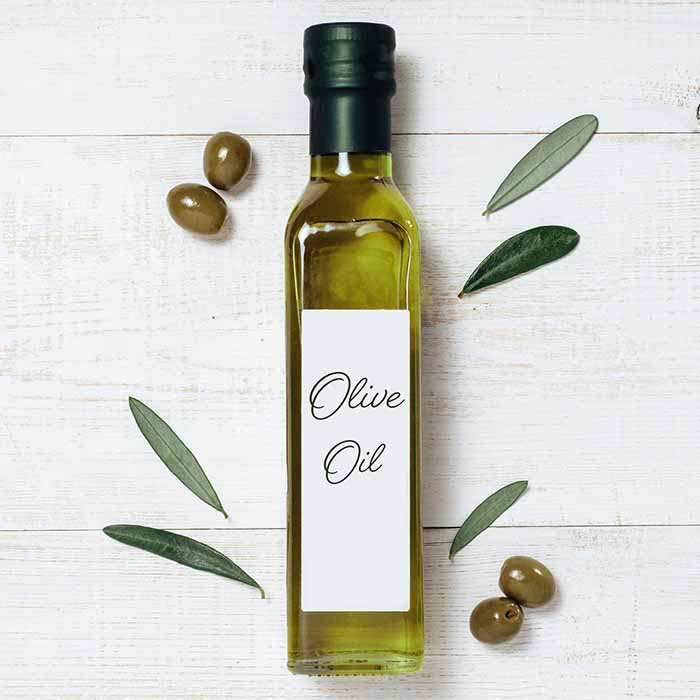

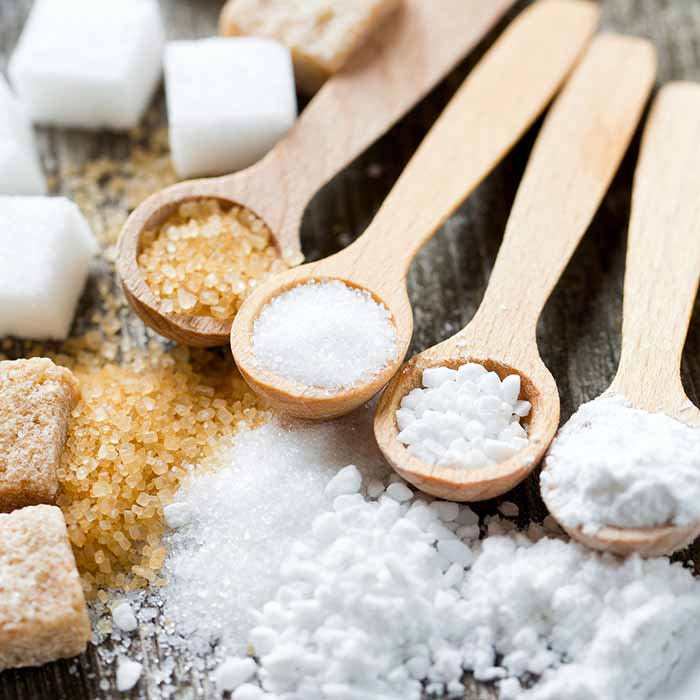
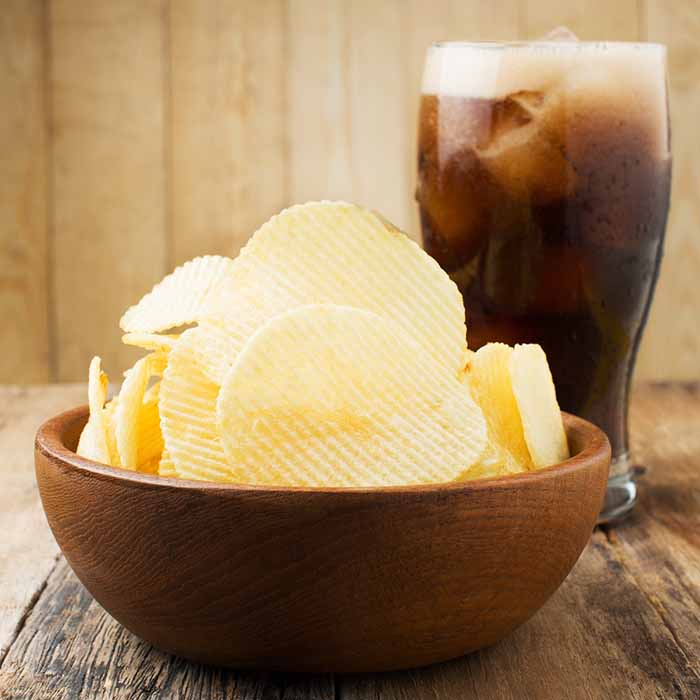
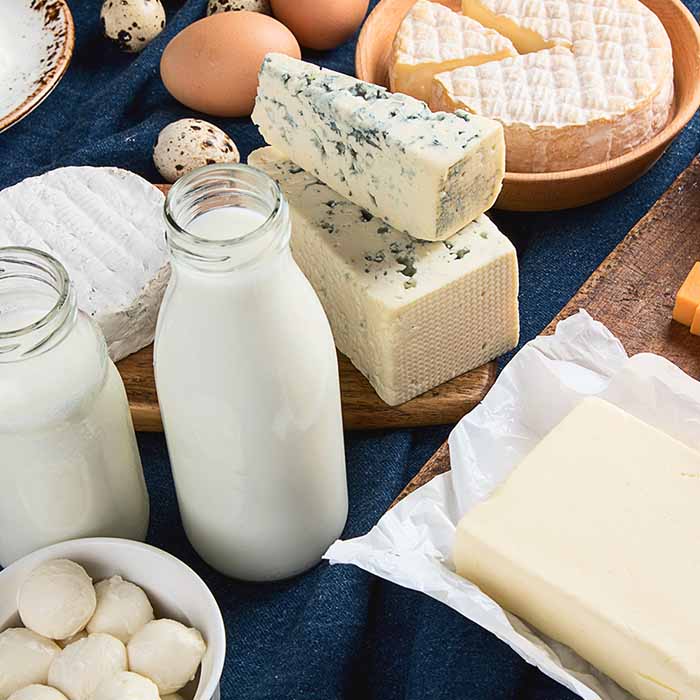






Want Some More Guidance or Inspiration?
CNS Kitchen
Join our FREE supportive community for cooking, engagement, and whole food, plant-based (WFPB) wellness support.
Take our WFPB: Getting Started Course
This free self-paced course offers practical guidance & resources to help you adopt a healthier, more sustainable way of eating.
Take a WFPB Beginner’s Course
Master the art of whole food, plant-based cooking and gain the skills you need to prepare healthy, great-tasting meals.

